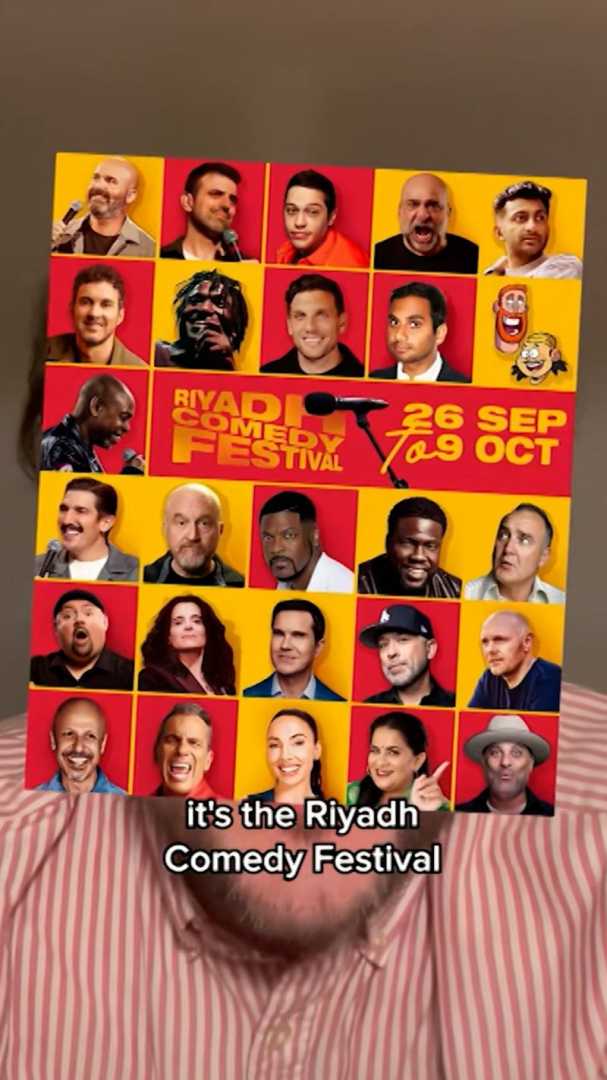Entertainment
Comedians Traverse Moral Lines at Riyadh Comedy Festival Amid Khashoggi Anniversary

RIYADH, Saudi Arabia — The Riyadh Comedy Festival is taking place from September 26 to October 9, 2025, marking the seventh anniversary of the murder of Washington Post journalist Jamal Khashoggi. The event has drawn criticism due to its ties to the Saudi government, which has faced allegations of human rights abuses.
In 2021, President Joe Biden stated that Crown Prince Mohammed bin Salman’s security detail was responsible for Khashoggi’s death at the Saudi consulate in Istanbul on October 2, 2018. Despite this, Saudi Arabia is now hosting a festival that features many high-profile comedians, reportedly compensating them with substantial fees.
Tim Dillon, a comedian who was offered $375,000 for his performance, expressed mixed feelings. “They bought comedy,” he explained in a podcast before he was reportedly dropped from the festival. He acknowledged issues with freedom of speech but admitted that financial security influenced his decision.
Contrasting viewpoints emerged among the comedians invited to the festival. Shane Gillis declined an offer to perform even after being told his pay would be doubled. Atsuko Okatsuka also turned down the invitation, criticizing the festival for enforcing strict content restrictions that prohibit any material degrading the Saudi royal family or religion.
The festival’s lineup includes other notable comedians such as Pete Davidson, Louis C.K., and Dave Chappelle. Chappelle made headlines during his set by discussing the current political climate in the U.S., saying it is “easier to talk here than it is in America,” highlighting the tension around censorship in comedy.
Comedian Nimesh Patel, who initially accepted an invitation, later backed out, stating that while he was offered a large sum, he could not condone performing in such a controversial setting. He remarked, “It wasn’t life-changing.”
The festival has sparked outrage among human rights advocates, who argue it serves as a platform for the Saudi government to distract from its ongoing violations. Human Rights Watch condemned the event, labeling it an attempt to whitewash the regime’s “atrocities”.
In a world where ethics clash with lucrative opportunities, the decisions of these performers continue to ignite a heated debate on the intersection of art, morality, and business.












